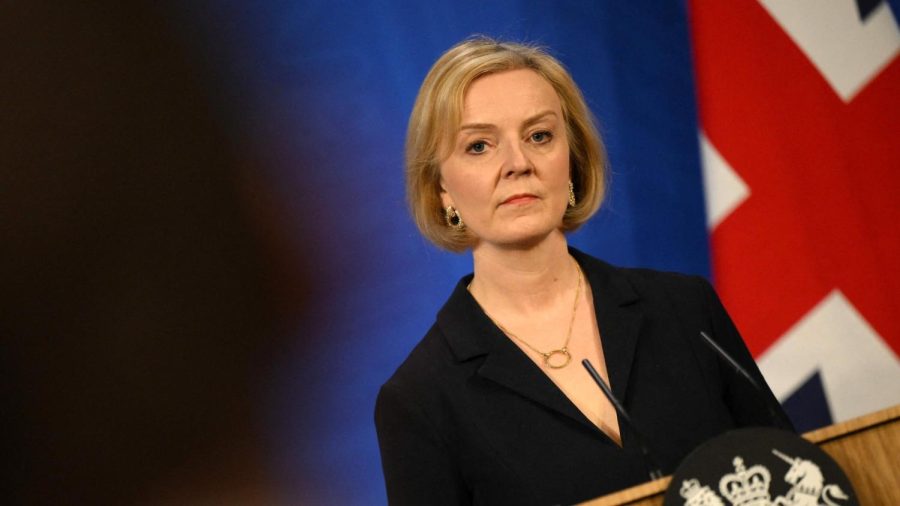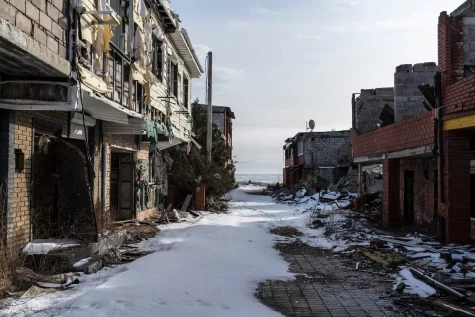What’s Going on With Britain’s Prime Ministers?
https://www.nytimes.com/2022/10/18/opinion/liz-truss-uk-hunt.html
Britain’s previous PM, Liz Truss, stands during a speech.
November 18, 2022
The resignation of Britain’s Prime Minister Liz Truss on October 20th, 2022, after just six short weeks in office, marked a monumental turn in British politics. Truss became the fourth prime minister to resign since the 2016 Brexit vote, joining David Cameron, Theresa May, and Boris Johnson in the ranks of now resigned British Prime Ministers. Now, Rishi Sunak is the Prime Minister(PM), marking the fifth PM that the United Kingdom (UK) will have had in six years.
Brexit
To fully understand the turmoil within the British Government, one must first understand the importance of the Brexit vote. The vote took place in 2016, and was intended to have the UK leave the European Union (EU). The Prime Minister at the time, David Cameron, campaigned against the vote, advocating for the consequences that would happen should the country leave the EU. When the vote itself passed, a referendum* that had been called by Cameron himself, Cameron resigned, leaving Theresa May to take the post of PM.
May attempted to pass legislation for the Brexit deal, but because of internal legislative interference, some of which was from within her own party, she was unable to pass the regulations that she had promised. This drove May to resign, much like Cameron, all because of Brexit, leaving the path wide open for Boris Johnson to take the post of PM with his promises to “get Brexit done”.
The COVID-19 Pandemic
Just when it seemed like Johnson was on track to avoid the Brexit curse that had doomed his predecessors, a new problem swept the globe. The COVID pandemic threatened every country, and Johnson did not have the infrastructure in place for such a thing due to Britain’s “myth that we can have Scandinavian levels of welfare on American levels of taxation,” as said by Tim Bale, a professor of politics at Queen Mary University in London. He also underplayed the toll and severity of the virus, which led to the country suffering 200,000 deaths, the largest death toll from COVID related complications in Europe*. Johnson also attended large government parties while the rest of Europe was on lockdown, while insisting that the government had adhered to the regulations of the time. This caused a scandal, leading to Johnson’s resignation on September 6th, and Liz Truss, his foreign secretary, succeeded him as the new PM.
Truss’ Tumultuous Six Weeks
Truss entered office with high hopes and dreams of a new and bettered economy. Unfortunately, with the war in Ukraine, and rising inflation, her plan to increase tax cuts without reducing public spending backfired and contributed to the downward spiral of the economy. Like Johnson, she had attempted to promise things during her campaign that were simply not viable when implanted into the country’s day to day lives. This, as well as her firing of a treasury secretary that she herself had appointed, led to extreme backlash against Truss, which influenced her resignation after only six weeks in office.
Where Are We Now?
As of the past month (November 2022), Rishi Sunak is now the PM for the UK, which leads many to hope that perhaps the governments troubling times are over. However, we cannot be sure of such a thing for years to come, as hindsight will always prove to be the best way of truly telling how effective a political leader was.










